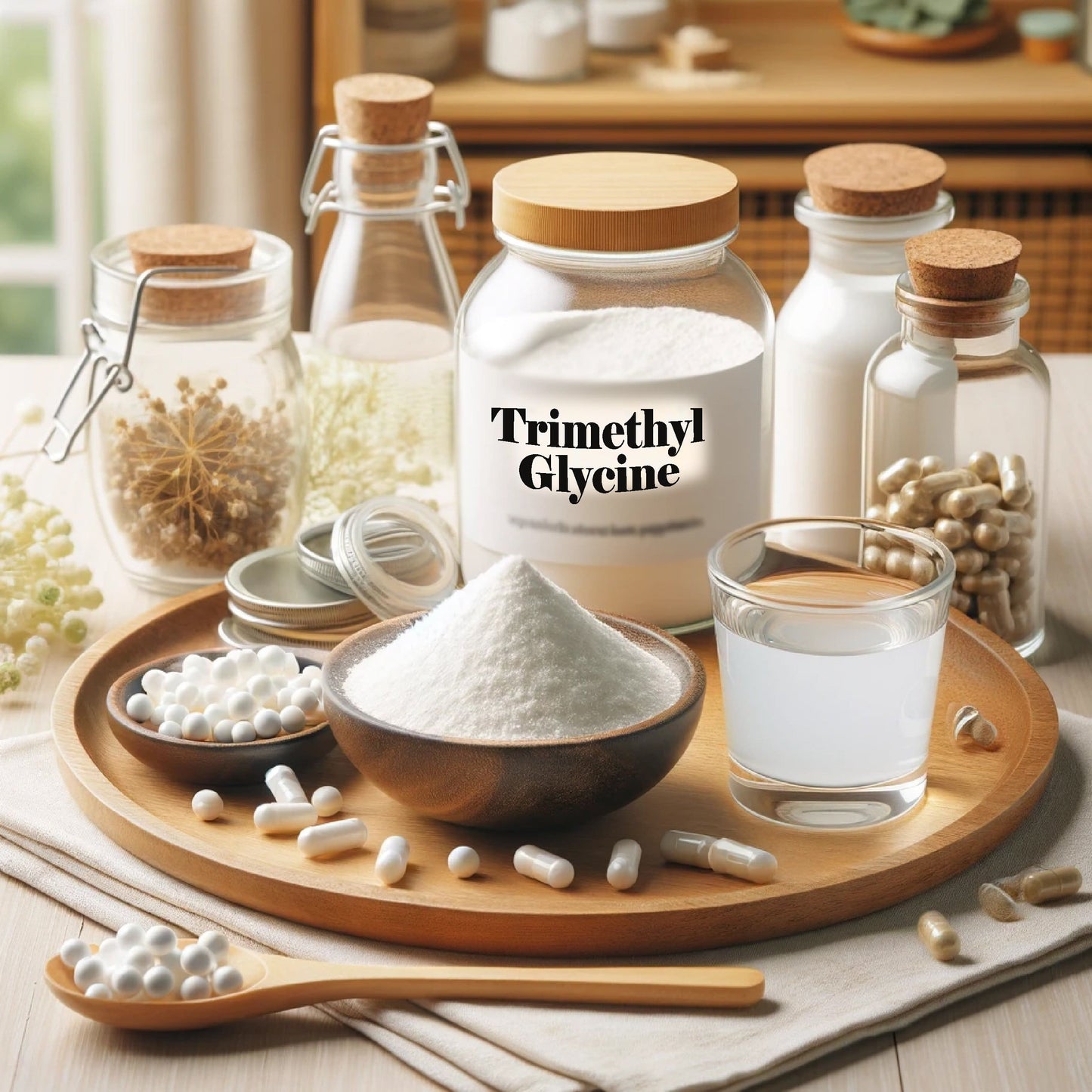reliable food sales
Trimethyl Glycine
Trimethyl Glycine
Couldn't load pickup availability
Trimethylglycine (TMG), also known as betaine, is a naturally occurring compound found in various foods such as beets, spinach, and whole grains. It is widely recognized for its role in supporting methylation processes in the body, contributing to overall health and wellness.
What is Trimethylglycine (TMG)? TMG is an amino acid derivative and a naturally occurring compound that acts as a methyl donor in various biochemical processes. It appears as a white, crystalline powder and is known for its stability and effectiveness in supporting health at the cellular level.
Uses in Health and Wellness:
- Methylation Support: TMG plays a crucial role in the methylation process, which is essential for DNA replication and repair, detoxification, and the regulation of homocysteine levels in the blood.
- Cardiovascular Health: By aiding in the reduction of homocysteine levels, TMG supports cardiovascular health and helps reduce the risk of heart disease.
- Liver Function: TMG helps support liver function and detoxification processes, aiding in the metabolism of fats and the removal of toxins from the body.
- Exercise Performance: It is used as a supplement to enhance physical performance, endurance, and muscle recovery, making it popular among athletes and fitness enthusiasts.
Health Benefits: TMG offers numerous health benefits, making it a valuable addition to a balanced diet:
- Heart Health: By lowering homocysteine levels, TMG helps protect against cardiovascular diseases and promotes a healthy heart.
- Liver Health: TMG supports liver function and aids in the detoxification process, contributing to overall liver health.
- Cellular Health: As a methyl donor, TMG is essential for proper cellular function, DNA repair, and gene expression.
- Improved Physical Performance: TMG supplementation can enhance athletic performance by improving endurance, strength, and muscle recovery.
How to Use: TMG is available in various forms, including powder, tablets, and capsules. The typical dosage ranges from 500 mg to 3 grams per day, depending on individual needs and health goals. It can be taken with or without food, and it is often included in dietary supplements and sports nutrition products.
Sources: Natural sources of TMG include beets, spinach, quinoa, whole grains, and seafood. It can also be synthesized and included in dietary supplements to ensure adequate intake.
Storage: TMG should be stored in an airtight container in a cool, dry place to maintain its potency and effectiveness. Proper storage ensures it remains stable and ready for use.
Trimethylglycine (TMG) is a powerful compound that supports overall health through its role in methylation, cardiovascular health, liver function, and physical performance. Whether obtained through diet or supplementation, TMG is a valuable nutrient that contributes to maintaining optimal health and wellness.
Share



